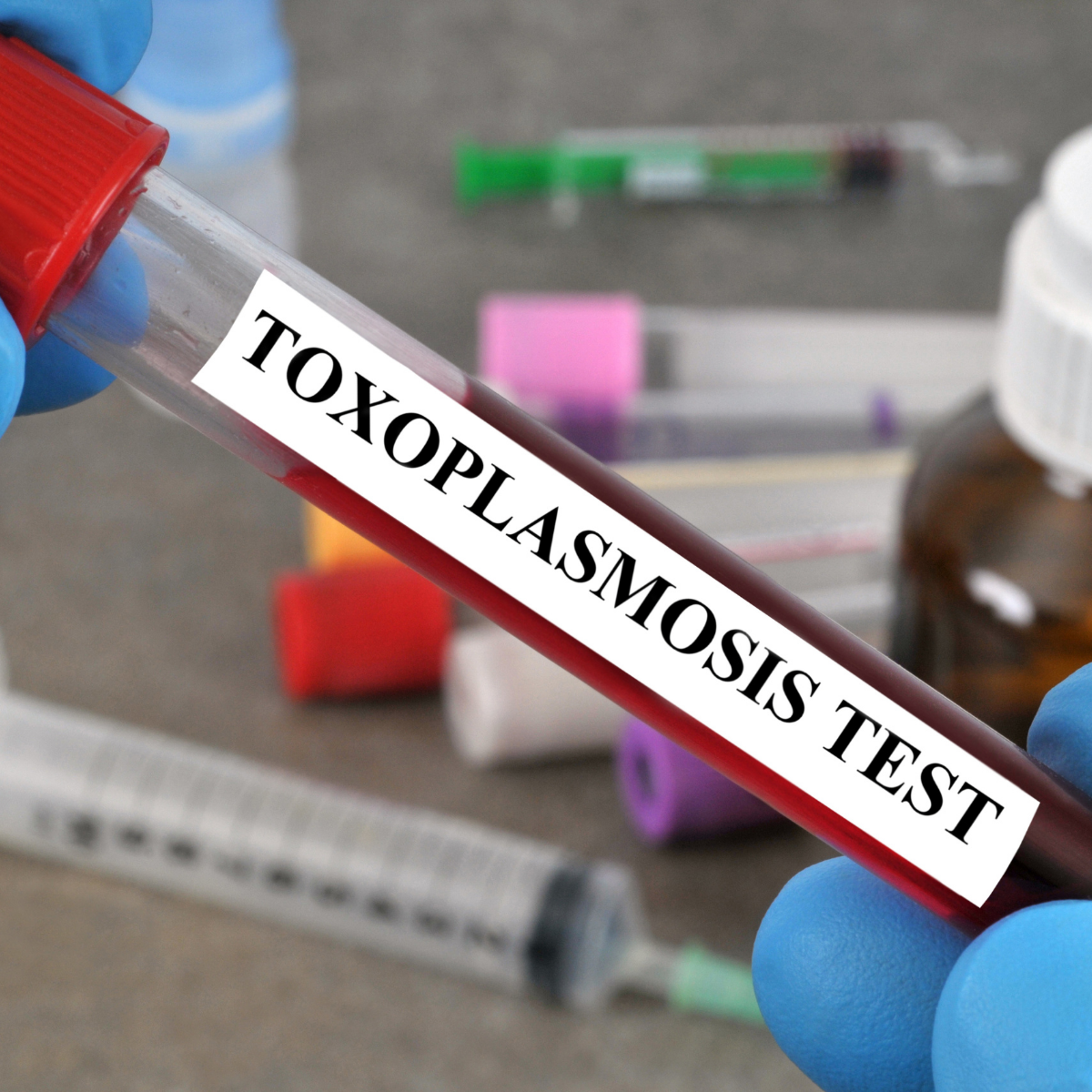Causative & risk factors
Even though the Toxoplasma gondii parasite can infect humans as well as cattle, it reproduces only in cats. Hence coming in contact with infected cats or their feces is the most important mode of infection. It can also be transmitted by intake of contaminated food or water. Raw or undercooked meat, unwashed fruits and vegetables or using contaminated utensils can transmit this infection. Receiving a blood transfusion or an organ transplant from an infected person can also result in toxoplasmosis.
It is possible for an infected mother to transmit the infection to the fetus, known as congenital toxoplasmosis.
Clinical presentation
About 80 to 90% people infected with toxoplasmosis do not develop any symptoms. Some of them develop flu like symptoms such as fever, fatigue, swollen lymph nodes, body aches, sore throat and lack of coordination.
If an immune-compromised person (HIV, recent chemotherapy) develops toxoplasmosis, he is at risk of developing permanent eye, lung or brain damage. They will have symptoms such as seizures, visual problems, chest pain, high fever, coughing up blood (hemoptysis) etc.
Pregnant women infected with toxoplasmosis carry a higher risk of miscarriages or stillbirths.
Babies with congenital toxoplasmosis may develop epilepsy, cerebral palsy, hydrocephalus, jaundice and problems with hearing and vision.
Investigations
A blood test is done to detect antibodies against Toxoplasma gondii. However a negative result does not rule out this infection.
Every pregnant woman is screened for antibodies against Toxoplasma gondii. Pregnant women suspected with toxoplasmosis are required to undergo ultrasonography of the womb and amniocentesis to detect congenital toxoplasmosis in the baby.
In cases with severe toxoplasmosis, additional testing may be required in the form of biopsies or scans.
Treatment
Most healthy patients with toxoplasmosis do not require any treatment. Treatment is usually necessary in infected pregnant women, babies or immune-compromised individuals. A combination of pyrimethamine and sulfadiazine is recommended. The drug spiramycin can be prescribed to pregnant women.
Recent updates
Even though most cases of toxoplasmosis respond very well to pyrimethamine and sulfadiazine; immune-compromised patients especially those with HIV have a high risk of adverse reactions. Currently newer drugs are being studied for such patients.






























